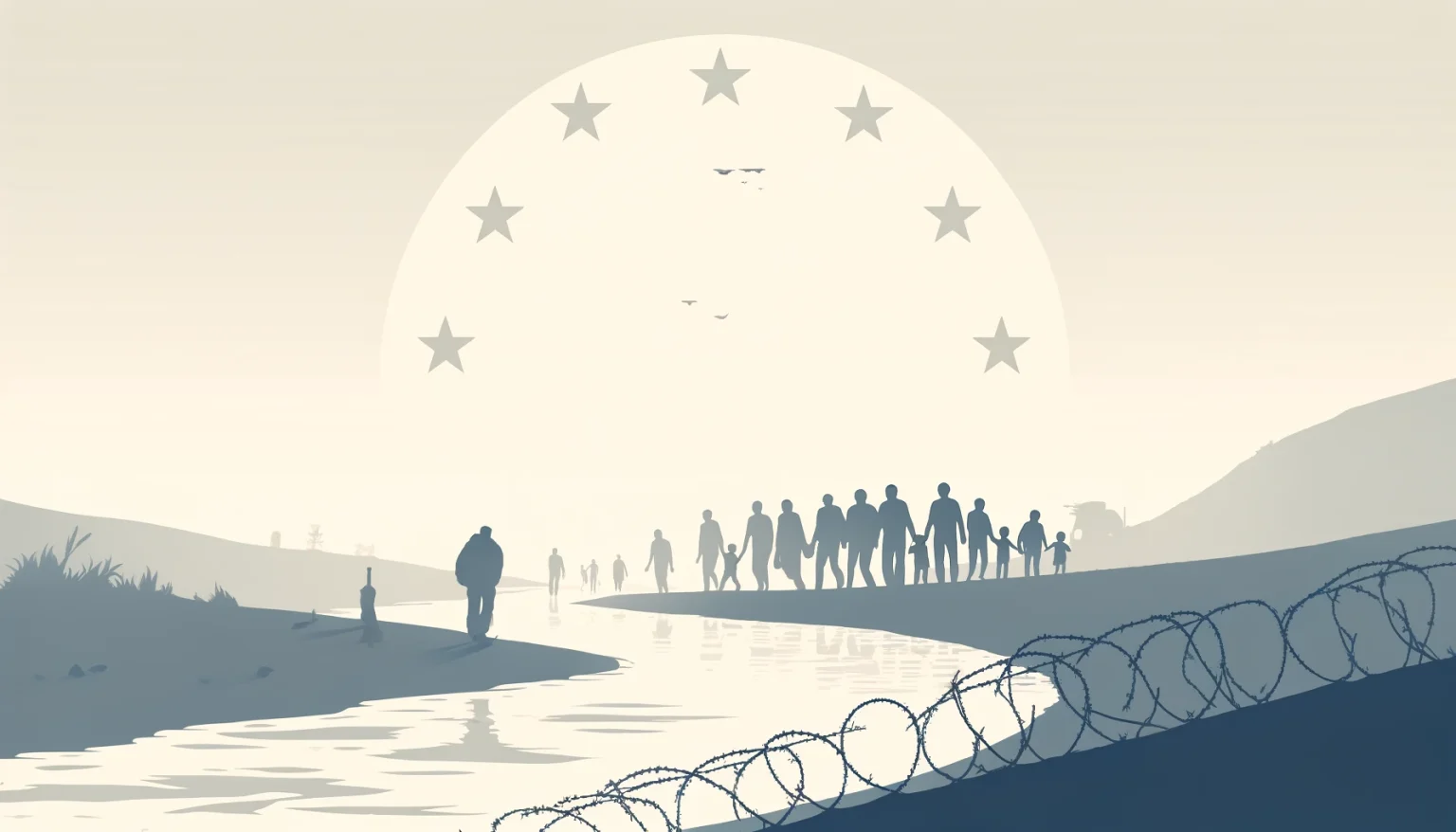As Greece faces scrutiny for its handling of migration, a new report by the Greek Council for Refugees (GCR) exposes alarming practices at the Evros border. Titled “At Europe’s Borders: Pushbacks Continue as Impunity Persists”, the report reveals how systematic pushbacks and a culture of impunity are stripping refugees and migrants of their rights, leaving them vulnerable to abuse and exploitation.
The Pushback Playbook
The report details harrowing accounts from 12 cases in 2023, showing a clear pattern in the way Greek authorities treat asylum seekers at the border. Refugees describe being:
- Arrested Without Cause: Detained incommunicado, often in degrading conditions without access to legal assistance.
- Subjected to Brutality: Survivors recount physical violence, strip searches, and verbal abuse, with some describing severe beatings for failing to comply with orders.
- Expelled Without Due Process: Transported to the Evros River under armed escort, stripped of their belongings, and forcibly returned to Turkey without a chance to seek asylum.
These actions violate international law, particularly the principle of non-refoulement, which prohibits returning individuals to countries where they may face harm.
Justice Denied: A System of Impunity
Despite overwhelming evidence, not a single pushback case has led to criminal charges in Greece. Even high-profile tragedies like the Pylos shipwreck, where survivors accused the Greek Coast Guard of negligence, have stalled in the judicial system. The report underscores a glaring lack of accountability:
- Judicial delays and procedural barriers keep survivors from seeing justice.
- Independent investigations into pushbacks are virtually nonexistent.
- EU oversight remains weak, despite significant funding for border management.
The Human Cost
For refugees, these practices are not just violations of rights but acts of dehumanization. Refugees, including families with children, face:
- Physical Danger: Reports of injuries and trauma during expulsions.
- Legal Exclusion: Being denied access to the asylum process, their voices unheard.
- Psychological Harm: Fear of retaliation discourages refugees from reporting abuse, deepening their isolation.
A Dark Cloud Over Human Rights
The crackdown isn’t limited to refugees. Human rights defenders, NGOs, and journalists face increasing legal harassment and intimidation in Greece. The shrinking civic space adds another layer to the crisis, as those advocating for migrants’ rights are silenced.
A Call for Accountability
The GCR report calls for immediate action to halt these abuses:
- Independent investigations into pushbacks and border practices.
- Suspension of EU funding for Greek border management until compliance with human rights is demonstrated.
- Stronger mechanisms for oversight and transparency across EU borders.
These recommendations are not just about policy but about restoring dignity and humanity to those fleeing conflict and persecution.
What’s Next for Europe?
As Europe debates its migration policies, the findings from Greece demand urgent attention. How long can the EU continue to fund border systems that so blatantly disregard human rights? What will it take for Greece—and Europe—to prioritize dignity and justice over deterrence and exclusion?
For more details, read the full report by the Greek Council for Refugees here: At Europe’s Borders: Pushbacks Continue as Impunity Persists.




